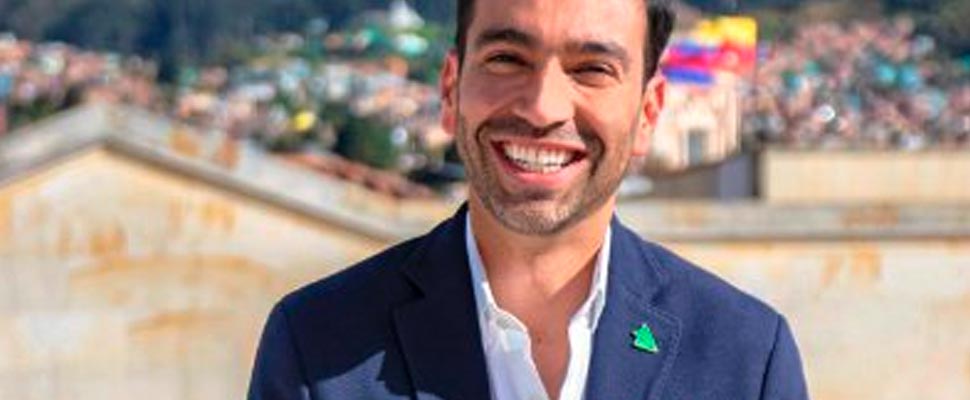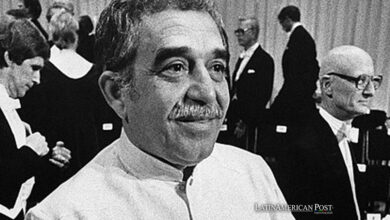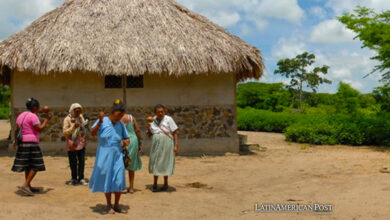Interview: “The LGBTI Struggle in Latin America Is Just Beginning”, Mauricio Toro
The First Openly Gay Man In the Colombian Congress Talks About the Challenges Of the LGBTI Community in Latin America.

Despite the fact that there were (and are) several women from the LGBTI community making careers in the Colombian legislature, never before has a gay man been elected. Photo: TW-MauroToroO
LatinAmerican Post | Santiago Goméz Hernández
Listen to this article
Leer en español: Entrevista: “la lucha LGBTI en América Latina apenas empieza”, Mauricio Toro
Mauricio Toro was elected to the Colombian Congress 3 years ago. Despite the fact that there were already several women from the LGBTI community making careers in the Colombian legislature, never before has a gay man been elected. The politician born in Armenia (Quindío), but a representative for Bogotá, spoke with LatinAmerican Post in commemoration of the day and month of gay pride.
LatinAmerican Post: How do you see the panorama of the community in Latin America with cases like those of Pedro Castillo, a leftist politician with homophobic discourse?
Mauricio Toro: Latin America has never been a welcoming home for the LGBTI community. We have always had to face homophobic and conservative states. Regardless of whether their leaders are left or right regimes. We have always had to face what state abandonment implies, social discrimination and the abandonment of public entities. There are some regions that are more advanced like Argentina. In general, all of Latin America has had different types of government but we have faced the same issues. Discrimination, state abandonment, a lack of public policy design, and a lack of rights, so the struggle of the LGBTI community must continue.
Also read: Five Cities to Visit in Pride Month
Of course, one would start from the basis that (Pedro Castillo), being a progressive person, understands the importance of secular diversity, equal rights, and non-discrimination. But this goes much further, this is an issue of education and rights. So the fight is just beginning in America.
LP: Speaking of rights on paper and being part of the legislative branch in Colombia, what policies can create a larger impact in the community?
MT: I'm going to start with Colombia, which I think is important and can serve as an inspiration and an example for those who today have supremely homophobic governments that genuinely attack the LGBTI community. Colombia has made great progress in terms of the protection and granting of rights, but it has not been thanks to the Congress of the Republic. This entity is supposed to legislate and create laws to guarantee an equal and diverse State, sexually speaking. Colombia has had to defend LGBTI rights through the Constitutional Court. What the court has done is to attend to some citizen lawsuits that have filed those complaints saying that "the Colombian State violates my rights to access the same as any other citizen" and the court has had to give orders the congress and create jurisprudence to regulate those orders.
So the court some time ago, after a lawsuit by some citizens who wanted the right to marry, granted us equal marriage and gave the Congress of the Republic time to regulate how and under what conditions to do so. Congress has historically refused to do so. The closest we got was 8 years ago, when the bill that allowed equal marriage was passed and conciliation fell into place (between the House and the Senate), after a very simple 3-year process of voting.
What they tried to do was to disrupt the quorum of the right-wing and Christian parties so that this would not be a reality. Although today we can still get married, we have to go to a notary's office and start a process where if the judge is an advanced and liberal-minded person, he does it. But we have found cases in which judges and notaries refuse and we have had to file a complaint and those demands then order the marriage, but they re-victimize us.
As for other rights, they have also been granted by the Constitutional Court and not by Congress. That has a problem and a benefit. As it is jurisprudence and it is a court that grants the right, it is very difficult to go back. Different from a law, because the law is made and undone with a project that annuls the law and makes us more vulnerable.
So with legal law, we are more secure. But the problem is that everything is very adrift. No step-by-step instructions are given. There is equal marriage because the Court decides it, but it is not known how, under what circumstances, what the public sector should do and that is why anyone can ignore the law. We must continue fighting and trying to make our situation visible and unite, continentally speaking, to try to keep the map of Latin America painted in colors.
LP: We are now in pride month. Is there something to celebrate in Latin America this month?
MT: Yes, we have to do it, because we have to start making ourselves heard. In other words, this is a moment of commemoration, first of all, of the struggle of those who in the past have achieved what they have achieved. For those who have been assassinated for that struggle and that fight for our rights. We can also make this commemoration fun today in terms of visibility and of showing that we are here, that we exist and that we require equal rights. So it is important that we celebrate love and pride in the different ways of loving, but we also commemorate with respect those who left us what we have today. Good or bad, it is much better than it was a few years ago.
LP: How to continue advancing rights, but also acceptance for the community?
MT: The most important thing for change is to realize that we may not care about politics, but politics cares about us. Politics has historically messed with us, but not as we want: denying us our rights, violating everything that as citizens we must have. So we have to participate. How does one get those rights passed in Congress? Choosing people with diverse thinking. They do not necessarily have to be from the LGBTI community, it would also be ideal for us to reach the spaces, but we must vote for people who keep, carry and defend our flags.
So please, when you sit down to vote for a candidate and you don't find anyone from the LGBTI community or you don't fully identify with their proposals, then don't vote for them. But tell whoever you are going to vote for "I vote for you because I like your proposals, but will you defend my rights there? If a law of the LGBTI community is presented, how are you going to vote? ".
It is necessary that we participate. I am the first openly gay man elected in the Congress of the Republic. Loneliness is brutal. When you try to talk about these issues, very few people are willing to confront them because heterosexuality is very fragile, because many feel that if they defend this man they believe that they will be branded a "fag". This is very bad, we are talking about rights.
We have to participate. We must show that we are people: men and women, workers, doctors, nurses, teachers, politicians, drivers, drivers. We are like everyone in society but we love our partners in our own way and that does not make us different.




